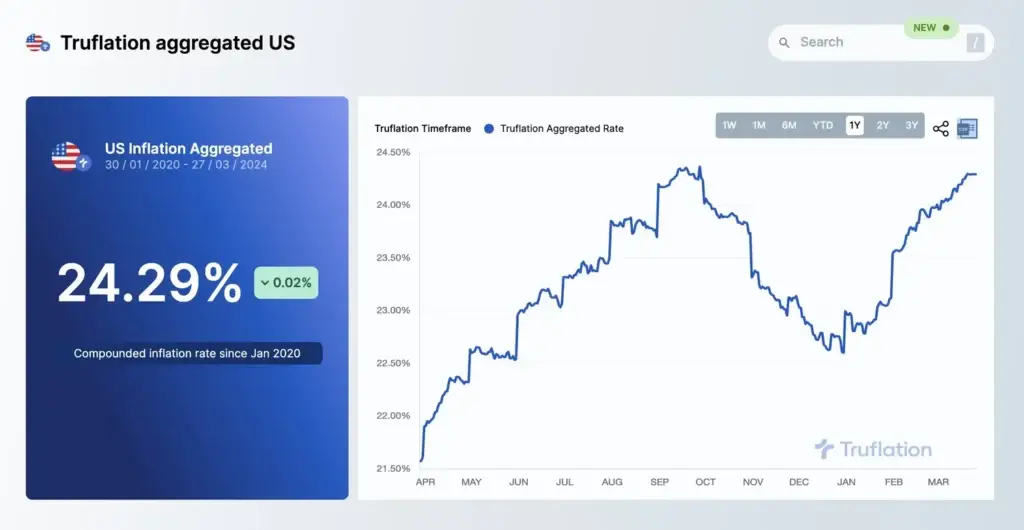You’ve done everything right – saved, invested, maybe even downsized. But when you look at retirement math in the US, it just doesn’t add up.
Social Security is taxed. So is your pension. Your 401k withdrawals? Still taxed. And with inflation eating 20-25% of your dollar’s value since 2020, your savings don’t stretch like they used to.

If you’re looking at your options overseas, taxes for expats can be quite complicated. We know this like the back of our hand. But there’s a loophole few expats know about: A legal 7% tax rate on your foreign income in Europe.
And yes, Americans can qualify. Let’s dive in:
Or watch the video here instead:
What is the 7% Expat Tax Regime?
Two Mediterranean countries, Greece and Italy, offer special programs that allow new foreign residents to pay a flat 7% tax on income from abroad. These regimes are specifically designed to attract pensioners and passive-income retirees.
Whether you collect Social Security, a military pension, dividends, or rental income, you may be able to slash your tax bill dramatically just by moving abroad and changing your tax residency. Yes, in Europe.
But before you pack your bags, let’s break down how each country’s 7% regime works and which one might be a better fit for your lifestyle, income type, and long-term goals.
Greece’s 15-Year 7% Flat Tax Regime
Greece has a straightforward tax regime that almost feels surreal: A flat 7% tax on your foreign retirement and pension income for 15 years.
This program was designed to attract retirees to Greece, and through their Financially Independent Persons (FIP) and Golden Visa residency programs, they’ve done a pretty good job of it. If you establish tax residency in Greece (i.e. spend more than half the year in the country) and qualify for the special tax regime, your US pension, Social Security, annuity, or other retirement income from abroad gets taxed at just 7% – just a single lump-sum payment due every July.
If you bring in US$100,000 per year in pension income, you pay just US$7,000 in Greek taxes. That single payment settles your full tax obligation to Greece for the year.
What You Need to Qualify for Greece’s 7% Flat Tax Regime
Not everyone qualifies for this special tax regime in Greece, of course. To be eligible:
- You must be a tax resident of a country with a double taxation treaty with Greece (the US has such an agreement, so US citizens are eligible).
- You must not have been a Greek tax resident for 5 of the last 6 years.
- You’ll need to prove your pension income from abroad with official documents (e.g., Social Security, private fund, or annuity).
- You must spend at least 183 days per year and have a legal immigration status (e.g. FIP visa or Golden Visa) in Greece to be considered a tax resident.
- You must apply before March 31 of the relevant tax year.
Moreover, you have to provide some light documentation, including your Greek tax ID, your passport, and often a notarized and apostilled Power of Attorney.
Greece’s Cost of Living Payoff
The 7% flat tax would be compelling on its own. But pair it with life in Greece – where €1,000/month gets you an ocean-view apartment in the world-renowned Greek islands, healthcare is affordable and accessible, and daily life moves at a human pace. Plus, Greece is home to a Blue Zone, where people live the longest, healthiest lives in the world.
This is a serious retirement upgrade for most Americans.

Limits of Greece’s 7% Flat Tax Regime
Non-pension income not covered under Greece’s regime, like dividends, rental investment income, or capital gains, is taxed at Greece’s normal progressive rates, which can reach up to 44%.
And while this structure reduces your tax burden in Greece, it does not, however, exempt you from US tax filing. But because the US and Greece have a double tax treaty and the latter honors the US’s Foreign Tax Credit, you can typically avoid being taxed twice on the same income.
Now onto your other flat tax regime option in the Mediterranean…
Italy’s 7% Flat Tax Regime
Italy’s version of the 7% flat tax is a full-scale legal tax hack for expats with retirement and passive income.
Launched to encourage the repopulation of Italy’s aging southern villages, this regime offers a sweet deal: A flat 7% tax on all foreign-sourced retirement and passive income, valid for up to 10 years. Here are the details:

A Tax Regime for More Than Just Pensions
Unlike Greece’s pension-only approach, Italy’s flat tax regime casts a wider net. Social Security, 401k withdrawals, IRA distributions, dividends, rental income from overseas properties, and even trust and royalty payments – All of it qualifies under this special tax regime, as long as the income is earned outside of Italy.
For American expats with diversified portfolios, that’s a major win.
You also get relief from typical European tax burdens:
- No wealth tax
- No inheritance tax
- No foreign asset reporting to Italy’s tax office
If you’re overwhelmed by extensive tax reporting and disclosures, Italy offers a rare reprieve in Europe.
Because of America’s unique citizenship-based taxation policy, US citizens still need to file with the IRS. But like Greece’s, the US-Italy double tax treaty and the Foreign Tax Credit generally prevent double taxation on the same income.
Limitations of Italy’s Flat Tax Regime
Sounds great up to this point, right? There is a slight catch: To qualify for Italy’s flat tax regime, you must live in a town with fewer than 20,000 residents in Southern Italy. That rules out the big cultural capitals like Florence, Rome, Venice, or Milan.
Instead, you’ll be looking at residency in regions like Calabria, Basilicata, Molise, Puglia, and Sicily. These towns are quiet, affordable, and often off the tourist trail. But they also have a lot to offer:
- Strong community
- Natural beauty
- In many cases, the slow-living charm of Italy’s famous Blue Zones
Who’s Eligible for Italy’s Flat Tax Regime and for How Long?
To qualify, you must:
- Establish legal residency in Italy in a qualifying municipality
- Register as a tax resident in Italy
- Prove that you haven’t been a tax resident in Italy for 9 of the past 10 years
Once accepted, your foreign retirement and passive income will be taxed at just 7% for 10 years. Plus, this feature sets Greece’s tax scheme apart from Italy’s. As of 2023, applicants of the regime cannot renew its benefits, which previously allowed you to extend the tax advantages with proper planning.
Additionally, Italy’s 7% flat tax can be extended to immediate family members unlike most European tax schemes. For an additional €25,000 per person, spouses, children, or dependents can also enjoy the same tax treatment – ideal for retirees relocating as a couple or multigenerational family on the Elective Residency or Investor Visas.
This regime isn’t for everyone. Southern Italian towns are slow-paced, often rural, and not as foreigner- and tourist-friendly as their northern compatriots. But if you’re the kind of retiree who values peace, affordability, flexibility, and tax savings on a wide range of income, Italy’s 7% offer is one of the best deals on the continent.
| Feature | 🇬🇷 Greece | 🇮🇹 Italy |
|---|---|---|
| Tax Rate | 7% on pension income only | 7% on all foreign passive and pension income |
| Program Length | 15 years (non-renewable) | 10 years (non-rewewable) |
| Residency Rules | 183+ days per year anywhere in Greece | Must live in small towns (<20k residents) in the South |
| Qualifying Income | Pension income (Social Security, 401k, etc) | Pension, rental income, dividends, more |
| Double Tax Treaty with US | Yes | Yes |
| Foreign Asset Reporting | Required | Not required |
Comparing the Two: Greece vs. Italy
Bottom line:
- If your income is purely pension-based and you want travel flexibility, go with Greece.
- If you also have investments or rental income, and like the idea of peaceful small-town living, choose Italy.
Italy’s and Greece’s Flat Tax Regimes in Practice
Let’s get one thing straight: You can’t just show up in Italy or Greece, rent a place, and expect the tax office to roll out the red carpet. These formal tax regimes require planning.
Step 1: Establish Residency
To benefit from either program, you’ll first need to become a legal resident of the country through a qualifying visa. In Greece, many of our clients opt for the Financially Independent Person (FIP) visa or the Golden Visa, while in Italy, the most common routes are the Elective Residency Visa or Investor Visa.
These visas are designed for people with passive or retirement income who can support themselves abroad, not remote workers or those who need work rights in their new country of residence.
Step 2: Qualify for the Flat Tax Regime
Once you’ve established residency, the second hurdle is proving your income is foreign-sourced and qualifies.
In Greece, the 7% regime applies only to retirement income, which typically includes Social Security, military pensions, annuities, and 401k or IRA withdrawals. Italy, by contrast, is broader and accepts retirement income and rental income from abroad, dividends, capital gains, interest, and trust distributions.
Both countries require a history of non-residency as well: In Greece, you must not have been a tax resident for at least five of the past six years. In Italy, you must have been non-resident for nine of the past ten years.
You’ll also need to apply by a specific deadline (e.g. March 31 in Greece), and submit official documentation, including your pension certificates, residency status, and often a notarized Power of Attorney, to finalize enrollment in the tax regime.
This is why working with global tax and immigration experts like the Freedom Files helps.

A Real Client Case Study
We recently helped a single, 65-year-old US retiree from South Dakota move to the Amalfi coast near Naples and take advantage of their 7% flat tax regime. Here was his approximate annual income:
- US$35,000/year from 401k withdrawals
- US$30,000/year from Social Security
- US$20,000/year in rental property income
- US$15,000/year in dividends from ETFs and index funds
That’s roughly US$100,000/year in foreign-sourced income.
In Italy, all of his income qualified under the 7% regime. His tax bill comes out to €6,800 per year – about US$7,600 depending on exchange rates. That’s an effective rate of under 8%, with no additional taxes on his foreign assets, no inheritance tax, and no reporting requirement to Italian authorities on what he owns or earns abroad.
As I mentioned above, sweet deal!
So while both the Greek and Italian regimes offer enormous savings over US federal and state tax rates, understanding what income qualifies and what doesn’t is crucial. Misclassify your income or skip the paperwork, and you could end up in the wrong tax system – or paying far more than you need to.
How to Take Advantage of Friendly Taxes for Expats
If you’re a US expat – or planning to become one – Italy and Greece’s 7% flat tax regimes can completely change your retirement trajectory. By slashing your tax bill, reducing your living costs, and offering a slower, richer lifestyle, these programs make retiring 5-10 years earlier possible and realistic.
But this kind of freedom doesn’t happen by accident. You need a plan:
- The right visa
- The right tax plan
- A clear understanding of how to legally qualify and file taxes in two countries
These programs – and other attractive tax regimes around the world – reward good planning. But they can punish mistakes. That’s where we come in.
The Freedom Files helps Americans like you map it all out – from the immigration strategy to tax planning, healthcare, and banking abroad. We help you design a freer, calmer, and more financially secure life overseas.
If that’s what you’re after, schedule a one-on-one Freedom Consult. If you’re still in your exploration phase, check out this article on our top five tax-friendly, residency-friendly countries abroad.


